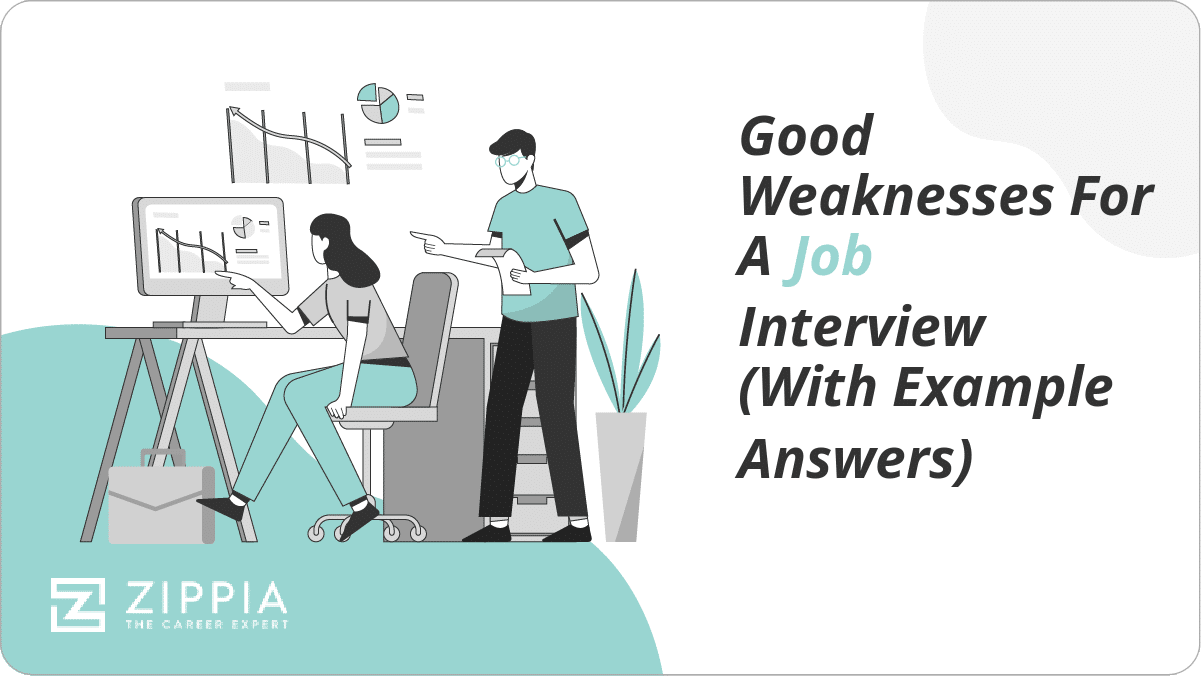- Application
- Email Communication
- Letter Communication
- Follow Up
- Recruiters And Staffing Agency
- Get A Job Through a Staffing Agency
- Get A Job Through A Staffing Agency
- Get A Job Through Headhunters
- How To Get A Job Through A Staffing Agency
- Startup Recruiters
- Staffing Agencies
- Best Temp Agencies
- What Is A Temp Agency
- Questions To Ask Recruiters
- Career Fair
- Questions To Ask At A Career Fair
- Follow Up With A Recruiter
- Career Fair Tips
- Job Application Tips
- About Me Page
- Answering Machine Messages
- What To Bring To A Job Fair
- Free Job Posting Sites
- Email Sign Offs
- Job Scams
- How Long Does It Take To Become A Doctor
- How Long Does It Take To Become A Vet
- Government Programs That Help Felons Get Jobs
- How Long Does It Take To Become A Dentist
- Relocation
- Job Search Spreadsheet
- Right To Work States
- How To Research A Company
- Military Requirements
Find a Job You Really Want In
Career fairs might seem like a thing of the past, a caveman’s tool for finding a job that’s totally useless in the modern age of online resources — but that just isn’t true. Career fairs are a goldmine of opportunities to make personal connections with employers and learn about what it’s like to work for them.
Because career fairs are such a great tool for finding a job, they’re bound to attract large crowds — and it’s important to stand out from everyone else. What can you do specifically to compete with the hoards of people who will also be there?
Don’t make the mistake of fading into the gigantic nameless crowd of job-seekers. Below are 10 tips to get the most out of career fairs and to make yourself stand out as a star candidate.
What Is a Career Fair?
A career fair is a recruiting and networking event where recruiters and representatives from several companies meet with large groups of job seekers. They are also sometimes called “job fairs” or “career expos.”
Career fairs are usually hosted at venues like hotels and conference centers and can last from a few hours to several days. In today’s world, more career fairs are taking place virtually than ever before. The scope of this article, however, is solely in-person career fairs.
Some career fairs are specific to a single industry, field, or even company. The more specialized the career fair you’re attending is, the more preparation you should do to stand out.
Usually, each company will have a booth set up where interested job seekers can go to introduce themselves, learn more about open positions, hold informal interviews, and even apply for a job on-the-spot.
People often associate career fairs with college students and recent graduates. While they are a great resource for those just starting a career or looking to change career paths, they can be great events for anyone, regardless of what stage of your career you’re in.
However, be sure that you’re attending career fairs that align with your interests and skill level, or you’re going to have a bad time.
Without further ado, let’s jump into the best practices you should follow at a career fair.
1Dress for Success to Make a Good Impression
This catchy (yet somewhat annoying) rhyme has been ingrained in our minds since high school. We all know the importance of first impressions, and how you’re dressed is one of the first things people notice about you.
Attend career fairs dressed professionally, like you’re prepared for an interview. If you have tattoos, cover them up — now is not the time to show off how hip and alternative you are. But remember to wear comfortable shoes, because you’ll probably be spending some time standing in lines.
Job fairs are usually pretty large events with big crowds. Dressing for success is a good way to make yourself stand out from the crowd and look like you have your life together — even if you don’t.
If you’re unsure about the look you should go for, do some research on the event. If it’s a regular thing, you should be able to find photos of former events. This will give you a better idea of whether you should opt for business professional or business casual attire.
2Practice Your Elevator Pitch
Take some time before the interview to practice giving an elevator pitch. Make sure to summarize who you are, your skills and experience, and your career goals.
Just saying “hi,” dropping off your resume, and running off to the next employer isn’t going to make anyone remember you. Tell the company representative a story about your career accomplishments and what sets you apart from other candidates. Giving this extra effort is what will make you stick out to employers.
To write a winning elevator pitch, follow the steps below:
-
Introduce yourself. Give your name and a brief description of your job title.
-
Talk about what you do (and why). Here’s where you want to drop a few major accomplishments from your professional life. You should keep a list of several accomplishments so that you can easily change this part depending on who you’re talking to.
For example, if you’re talking to a high-level hiring manager who doesn’t know many technical details about the role, you might highlight your collaborative abilities and work ethic. For someone with a solid background in your field, on the other hand, you can get more into the nitty-gritty of your work.
-
Describe what you want. Now’s the time to make your “ask.” Determine what action you want your conversational partner to take after this conversation. It could be reaching out with more information, putting you in touch with the right person, or arranging an interview.
Whatever it is, make sure that what you want out of this exchange is totally transparent.
It’s okay if you want to write out your elevator pitch in full, but we recommend using bullet points to prepare. That way, your pitch will sound a little different each time, and a whole lot more natural and less rehearsed.
3Be Prepared
Arrive at the career fair ready for war. Bring a portfolio with copies of your resume, a list of references, and samples of your best work. Make sure to also bring pens, a notepad, and business cards with your name, your email address, and your cell phone number.
If you want to be extra prepared, you can even tailor your resume for each of the major companies you want to impress. This step can be time-consuming, but if you think you’ve found a few potential dream jobs, it’s worth the effort.
Just make sure you organize your materials ahead of time so that each company receives the correct (optimized) resume you wanted them to get.
Even though job fair interviews tend to be pretty short, it’s always good to be prepared to discuss your portfolio with recruiters.
Additionally, brush up on your basic industry knowledge and consider your answers to the most common interview questions. There’s a lot of overlap with the kinds of questions you’ll hear at a career fair, so you’ll be killing two birds with one stone.
4Research the Companies
You wouldn’t show up to a job interview clueless about the company or the position. Treat the career fair like a series of informal interviews and do research before you go in.
Many career fairs have information about the participating companies on their website. Research the companies that will be there and narrow down a list of the companies that you’d like to work for.
Be prepared to talk to recruiters about their company’s mission, open positions, and clients they serve. Showing knowledge about companies and the steps you took to learn about them will impress employers and make them remember you.
By doing some research before the career fair, you’ll also be able to ask specific questions about each company. This will show employers that you’re interested in them, which will always leave a good impression.
5Make a Schedule
You want to give yourself plenty of time to talk to recruiters, so make sure to arrive as early as possible to avoid the worst of the lines. Before going in, decide which companies you want to connect with and prioritize them.
Even though you want to make sure that you get to introduce yourself to all of the companies on your list, it’s also good to give yourself time to introduce yourself to companies that aren’t on your list that you might be interested in working with — think of these as wild cards. It’s always good to have a wild card.
We recommend bringing a physical, written-out schedule with you so that you can easily tick off boxes as you have the conversations you want. Staying organized at these events will make your life a lot easier when you’re reflecting on everything you learned after it’s over.
6Network With Fellow Job-Seekers
While you’re waiting in one of the many lines you’ll run into at a career fair, talk to the people around you and exchange business cards and personal information — but don’t get too personal — keep it polite and professional.
This isn’t the time to build your next all-star beer pong squad. Career fairs are essentially a gigantic networking opportunity — you never know who could help you in your job search.
Try to collect as many business cards as possible and focus on making good, memorable impressions. Write down notes on the back of the business cards you collect or in your notepad so that you can remember who you talked to about what. When you apply for positions in the future, you can give yourself a leg up by referencing a connection.
If you’re uncomfortable talking to new people, look over our guide on networking tips for introverts.
7A Little Enthusiasm Goes a Long Way
One of the most important traits someone can bring to a new job is enthusiasm. Instead of trying to be aloof and mysterious, show your interest in a company by smiling and talking with the company’s recruiter. Let them know that you’re excited about the opportunity and show off your knowledge of their company.
On the other hand, there’s no need to talk about your general job search with company recruiters – they’re not career counselors. Try to stick to talking about your job-related strengths and experiences and what you can bring to the company.
Recruiters and hiring managers love to see candidates who will bring passion to the role. They know you’ll be intrinsically motivated to perform at your best, which makes them feel a lot more comfortable bringing you on board, or at least inviting you for an interview.
8Ask Questions About the Company
When researching the companies on your list, come up with questions for the recruiters that show off your general knowledge of their company — employers want to hire people who are genuinely interested in their company. The more you talk to the recruiters and focus on the company, the better impression you’ll leave.
Good questions to ask include:
-
What does success look like for this position?
-
What is a typical day like for a person doing this job?
-
What are the major challenges people in this role/department face?
-
What would be the major priorities for this job in the first 30/60/90 days?
-
Where do you see this company going in the next five years?
-
What issues is the company facing and how does this department help to address thoe problems?
-
What sort of team would I be working with?
-
What are some exciting projects that are in the works right now?
The idea behind your questions is to paint yourself as a person who’s already thinking like an insider. By asking these sorts of questions, you’re not just curious about how the current team gets things done — you’re concerned with the company’s future and enduring success.
9Take Notes for Future Reference
Make sure to take notes when you talk to recruiters about the next steps and opportunities to talk to other managers. Write down any additional information about the company you may have learned at the career fair that you didn’t find online.
If the recruiter can’t answer all of your questions, write down the information of other staff members at the company who you can contact later. Also make sure to note information sessions, on-campus interviewing dates, and future hiring dates.
You won’t be able to take advantage of these opportunities if you don’t know when or where it’s happening or who to talk to. Help your future self out and write down notes.
10Be Prepared to Answer Questions About Yourself
Many employers begin interviews by saying, “Tell me about yourself.” This is one of the hardest interview questions to mess up, but how you answer it will say a lot about you.
There’s no need to go into your favorite colors or what you think about right before you fall asleep — honestly, no one really cares. Just be prepared to give them your name, a brief statement about your job-related skills, why you’re interested in the position, and what interests you about their company.
Remember to keep your response concise. At a career fair, you don’t have a lot of time to make your impression before it’s time to move onto the next interview. Think of it as speed dating for jobs.
Final Thoughts
As a rule of thumb, always send a follow-up email to the company representatives you meet at career fairs. Sending thank-you notes is a good professional habit and also reiterates your interest in the position. A brief thank-you email will acknowledge that the company representatives helped you and remind them that you’re a strong candidate.
Career fairs are all about being personable and memorable — it’s a great way to meet face-to-face with the company, and can potentially get you further than just applying online. They’re also a great way to learn about new companies, gather information, get career advice, and network with others who are also on the hunt for a job.
If you attend a career fair well prepared and with an open mind, you might just find your next job offer (or three)!
- Application
- Email Communication
- Letter Communication
- Follow Up
- Recruiters And Staffing Agency
- Get A Job Through a Staffing Agency
- Get A Job Through A Staffing Agency
- Get A Job Through Headhunters
- How To Get A Job Through A Staffing Agency
- Startup Recruiters
- Staffing Agencies
- Best Temp Agencies
- What Is A Temp Agency
- Questions To Ask Recruiters
- Career Fair
- Questions To Ask At A Career Fair
- Follow Up With A Recruiter
- Career Fair Tips
- Job Application Tips
- About Me Page
- Answering Machine Messages
- What To Bring To A Job Fair
- Free Job Posting Sites
- Email Sign Offs
- Job Scams
- How Long Does It Take To Become A Doctor
- How Long Does It Take To Become A Vet
- Government Programs That Help Felons Get Jobs
- How Long Does It Take To Become A Dentist
- Relocation
- Job Search Spreadsheet
- Right To Work States
- How To Research A Company
- Military Requirements





